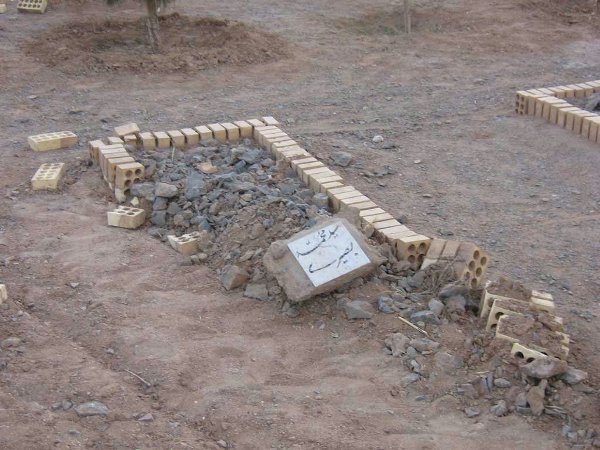Source: en.radiozamaneh.com
Javad Abbasi Tavallali interviews Diane Ala’i of the Baha’i International Community

The Islamic Republic of Iran not only does not recognize Baha’is as a religious minority group but it does not leave the Baha’i community alone to just live their lives in a country that this religion originated from. The intelligence and judicial authorities in Iran systematically persecute Baha’is. Aside from routine interrogations, prosecutions and imprisonment, Baha’is in Iran face extralegal harassment when their businesses, houses, and even gravestones are attacked by fanatics and state affiliates.
Baha’is have limited citizen rights and their right to education is also prohibited with the state not allowing Baha’is in higher education, expelling them from colleges and universities.
This is despite the fact that Iran is a member of the International Covenant on Civil and Political Rights (ICCPR) and as such has accepted that its citizens should have the “freedom to have or to adopt a religion or belief.” Using international treaties and mechanisms to pressure Iran to recognize Baha’i citizen rights have failed since 1979 and the coming to power of the Islamic Republic.
It is estimated that there are over 300,000 Baha’is currently living in Iran. In an interview, Diane Ala’i, Representative to the United Nations Baha’i International Community, told Javad Abbasi Tavallali that “it is not possible to know how many Bahá’ís there are in Iran” because there is no state recognition of Baha’is in the national statistics.
Javad Abbasi Tavallali – What is your opinion about the systematic violation of Iranian Baha’i citizenship rights? And what are the root causes?
The root is that the present authorities are not prepared to accept anyone that thinks differently from them and are prepared to do whatever is in their power in order to stifle freedom of thought, conscience or belief. And this is not only for Baha’is; we also see it for courageous human rights defenders, lawyers, journalists and other religious minorities within and outside Islam.

Diane Ala’i – It is clear that the violation of the human rights of the Bahá’ís and thus of their citizenship rights stems from a very systematic policy that is put in place by the Iranian authorities. This can be seen from the number of confidential documents that came to light, the most important of them being the 1991 circular from the Iranian Supreme Revolutionary Cultural Council. And this is in total contradiction with the principles of Islam (as can be seen from Ayatollah Montazeri’s fatwa) but also with the discourse of President Rouhani and his administration that constantly evoke citizenship rights.
For over forty years of violation of Baha’i rights in Iran, has the Baha’i community of Iran managed to maintain its organizational structure?
As you know, the Bahá’í Faith does not have any clergy and the community is guided and its affairs managed by councils, or Spiritual Assemblies (mahfelrowhani), whose nine members are elected every year without candidature or campaigning.
At the beginning of the Islamic revolution, the authorities first arrested and executed a large number of the members of successive National Assemblies and of local ones. Then they instructed the Bahá’ís to disband these and the Bahá’ís obeyed. However, after a while, the community required some form of management in order to attend to the needs of the community (perform marriages, grant divorces, provide children with spiritual education, etc…). Therefore, the Yárán were established with the full knowledge of the authorities. As you know, these seven persons were unjustly arrested and tried, and spent 10 years of their lives behind bars, solely because of their religious beliefs.
While they were in prison, the Prosecutor General also announced that the group of the Yarán was illegal and these seven persons decided to disband it. So, as you can see, the organizational structure was not maintained, and thus, the Bahá’ís in Iran are now without any form of administration.
Is there a precise statistic on the number of Baha’i in Iran?
Precisely because there are no longer any National or Local Assemblies, it is not possible to know how many Bahá’ís there are in Iran. The number of 350, 000 that the Bahá’í International Community uses dates back to 40 years ago, so one could confidently assume that it has grown since.
There are some external, non-Bahá’í, entities that have organized polls and they claim that the community is somewhere between 1 and 3 million, but we do not know how correct these figures are.
Leave a Reply